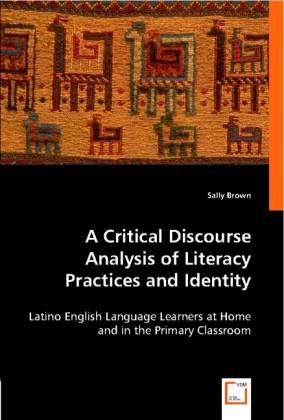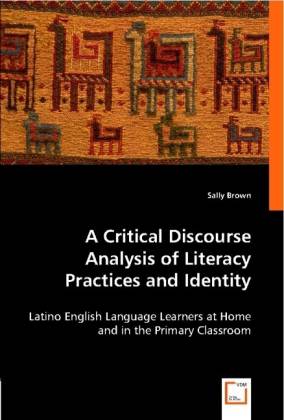
- Afhalen na 1 uur in een winkel met voorraad
- Gratis thuislevering in België vanaf € 30
- Ruim aanbod met 7 miljoen producten
- Afhalen na 1 uur in een winkel met voorraad
- Gratis thuislevering in België vanaf € 30
- Ruim aanbod met 7 miljoen producten
Zoeken
A Critical Discourse Analysis of Literacy Practices and Identity
Latino English Language Learners at Home and in the Primary Classroom
Sally Brown
Paperback | Engels
€ 77,95
+ 155 punten
Omschrijving
As technology expands and borders between countries blur, more and more societies including the United States are becoming multilingual. The rich diversity of many languages is felt particularly in education as increasing numbers of students whose home language is other than English enroll in school. This study presents the national, local, and state climates surrounding the education of two Latino children. Through this collaborative-ethnographic style research design, the study investigates the ways in which identities are constructed for or by Latino children as they use language at home and at school. The author explores classroom literacy events and the ways Latino children negotiate these events with their peers in an English dominant classroom. Results reveal the fluidity of identity across classroom curricular structures and in the home. Relationships with peers, adults, and family members contribute significantly to identity construction. The text is useful for researchers, students and educators working with culturally and linguistically diverse children, and those in the fields of second language learning, bilingualism, applied linguistics, and language learning.
Specificaties
Betrokkenen
- Auteur(s):
- Uitgeverij:
Inhoud
- Aantal bladzijden:
- 228
- Taal:
- Engels
Eigenschappen
- Productcode (EAN):
- 9783836490597
- Verschijningsdatum:
- 7/04/2008
- Uitvoering:
- Paperback
- Formaat:
- Trade paperback (VS)
- Afmetingen:
- 152 mm x 229 mm
- Gewicht:
- 308 g

Alleen bij Standaard Boekhandel
+ 155 punten op je klantenkaart van Standaard Boekhandel
Beoordelingen
We publiceren alleen reviews die voldoen aan de voorwaarden voor reviews. Bekijk onze voorwaarden voor reviews.











